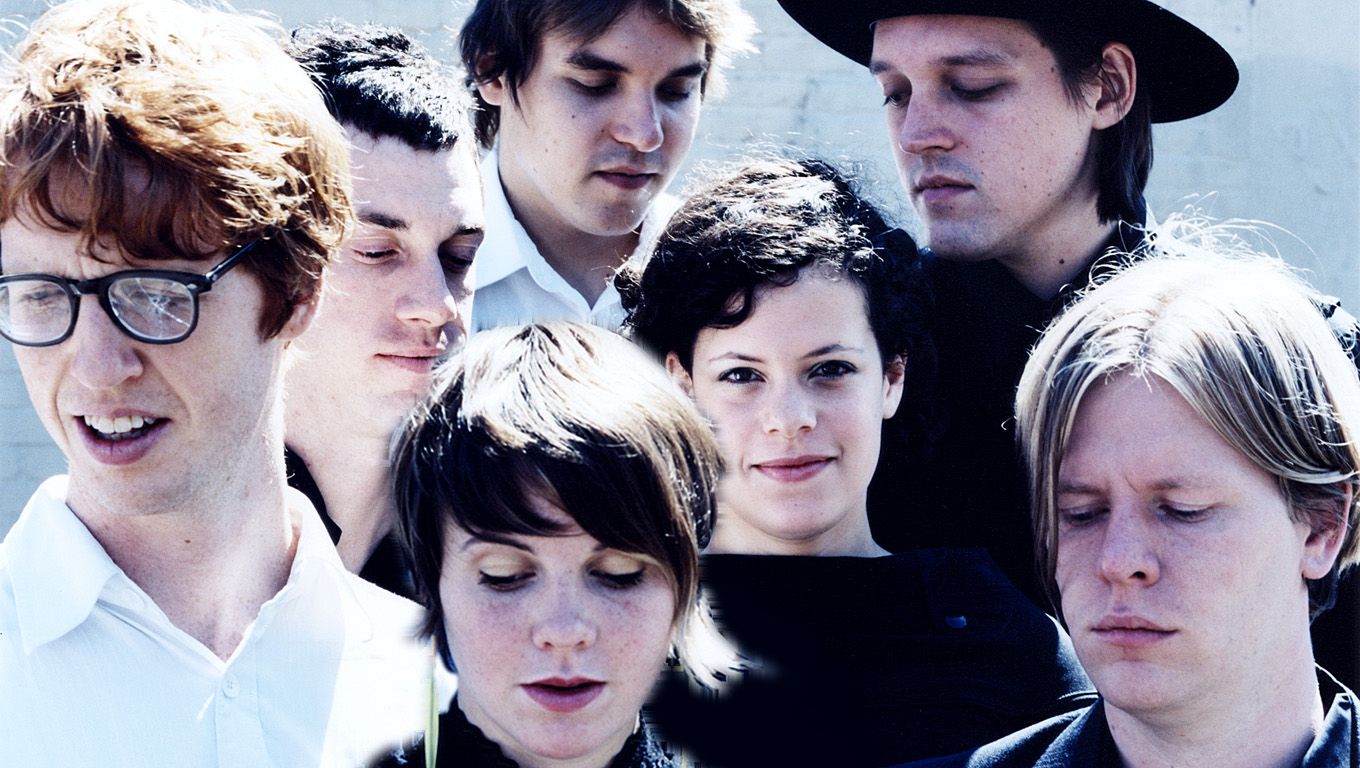Reflektor is the most fully realised album that Arcade Fire have released, and it is precisely because they have evolved and moved on as a group. The band’s previous three releases make up a trilogy of sorts, connected thematically. Until now, Arcade Fire had been a band obsessed with youthful dreaming, innocence and childhood. The Funeral painted a nostalgic and sweet picture of the past, sentimental, warm and at times almost ubiquitous in its portrayal of how young eyes see the world. Neon Bible, in a sense, was the perfect reactionary album, concerning itself with the loss of said innocence and the pains of looking back on (seemingly) simpler times. The Suburbs, then, was the obvious yet perfect conclusion to the traditional three-act structure: it provided resolution. And here comes the fourth, Reflector, album with its own entity with its own ideas and its own sound, completely divorced from the band’s previous efforts, with a unique voice and style that is at once totally new and fundamentally Arcade Fire.
Dramatic, overarching themes dominate Reflektor. One is the Greek myth of Orpheus, the master musician whose tragic, human flaws kept him from saving his love, Eurydice (portrayed in the album artwork). Another is the Caribbean island nation of Haiti, from which band member Regine Chassagne‘s parents fled during a harsh dictatorship. Chassagne’s husband, frontman Win Butler, spoke of life-altering experiences in Haiti during the album’s creation, and Haitian musicians contributed to the sessions. Another guest, ex-LCD Soundsystem mastermind James Murphy, lends his expert hand to Reflektor‘s production, and though his presence is felt, it isn’t overwhelming. This is still an Arcade Fire album through and through – just injected with heavy dance grooves (at the first half), and then becomes impressively melancholic and whimsical (at the second half).
Reflektor opens with a seven-minute epic that could really be used as a legend. Production from James Murphy, backing vocals from David Bowie… what could go wrong? Not very much, it turns out, as “Reflektor” is a heroic and majestic. The track takes the sped-up, groove-centric percussion Murphy is known for, and goes one better by employing help from Haitian percussionists while Butler and Chassagne share in the song’s anthemic chorus. With plenty of expert musicians in the studio, a track like “Flashbulb Eyes” probably is a clinic on how to execute an intricately multi-tracked song to auditory perfection. The reggae-rock track reels in the listener immediately, and the xylophone that sneaks into the chorus subtly takes the song to the next level. Other highlights include the straight up ridiculous “Here Comes The Night Time”, track with chilled out vocals, bouncy bass and tropical instrumentation. Lyrically, the song deals with Butler’s transformative experiences in Haiti. According to the singer, it was inspired by the desperate plight of refugees fleeing for the United States in boats, and the resistance they received from from the authorities. However, they don’t let the listener rest for long before the blistering “Normal Person”, the most rockabilly track in this record displays a band who sound more exhilarated than ever before.
If disc one gives the album a pulse, then disc two delivers its requisite emotional punch. Melancholic ambiance starts here with a strong lyrical statement. Greek tragedy informs the splendid duo “Awful Sound (Oh Eurydice)” and “It’s Never Over (Oh Orpheus).” On “Awful Sound,” Butler as Orpheus laments love lost over a McCartney-esque, sing-along chorus. In a collision of New Wave and funk, Chassagne, our Eurydice, finally takes the spotlight in the gem “It’s Never Over.” It takes a while for Reflektor to reach “Afterlife,” its climax and closest sequel to “Sprawl II.” It also one of the album’s most thrilling tracks and champion. Reflektor closes with the immense warmth and sparkling beauty of “Supersymmetry,” a parting gift to the already grateful.
Overall, Arcade Fire have defined a generation, yet again. Reflektor may hit some fans hard, given the drastic change, however for the majority, this record is not just a relief, but a victory. They’ve re-affirmed their place as one of the best bands in the world and have created an album that is insightful, emotional, fun and just damn amazing. For everyone else, get ready to fall in love again. Arcade Fire, we salute you. (Text Teuku Ajie)
Essential Tracks:
1. Afterlife
2. Reflektor
3. Awful Sound (Oh Eurydice)
4. It’s Never Over (Oh Orpheus)
5. Here Comes The Night Time


